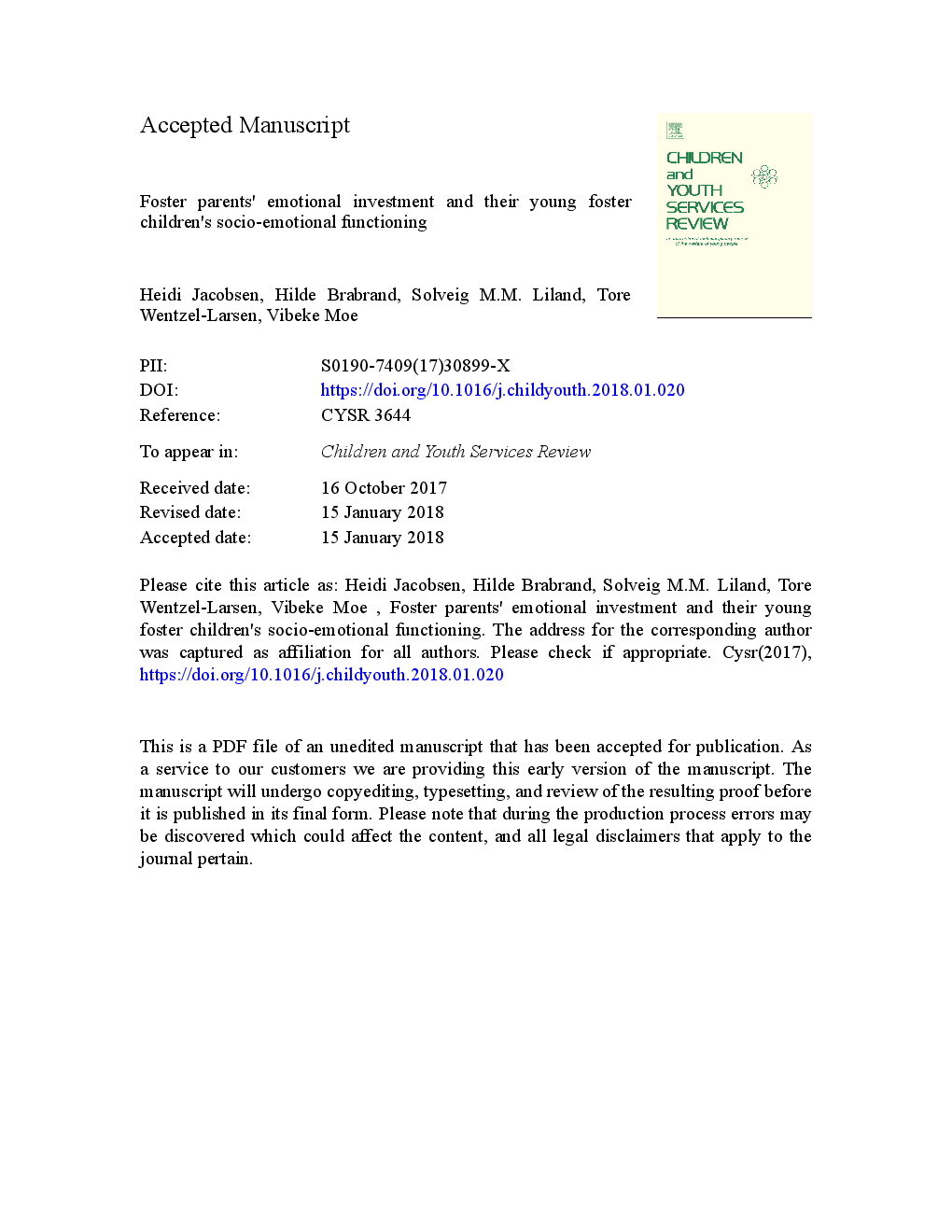ترجمه فارسی عنوان مقاله
سرمایه گذاری عاطفی والدین و عملکرد اجتماعی-احساسی فرزندان جوان آنها را تقویت کنید
عنوان انگلیسی
Foster parents' emotional investment and their young foster children's socio-emotional functioning
| کد مقاله | سال انتشار | تعداد صفحات مقاله انگلیسی |
|---|---|---|
| 127424 | 2018 | 28 صفحه PDF |
منبع

Publisher : Elsevier - Science Direct (الزویر - ساینس دایرکت)
Journal : Children and Youth Services Review, Volume 86, February 2018, Pages 200-208
ترجمه کلمات کلیدی
سرمایه گذاری عاطفی، تعهد، عملکرد اجتماعی و عاطفی، پدر و مادر فاستر، فرزندان فاستر،
کلمات کلیدی انگلیسی
Emotional investment; Commitment; Socio-emotional functioning; Foster parents; Foster children;

